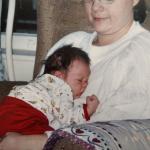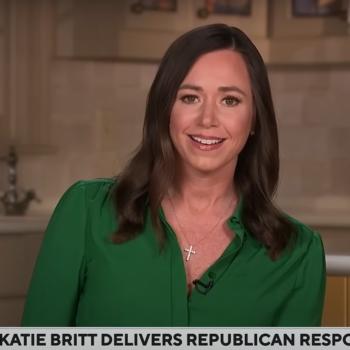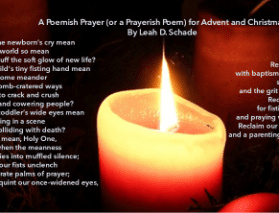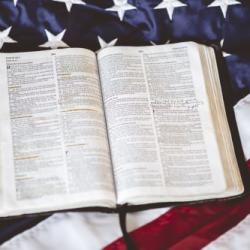Mary Ponders: Part Two. [See also: Part One: Mary, Pondering and God-bearing.]
“But Mary treasured all these words and pondered them in her heart.” Luke 2:19
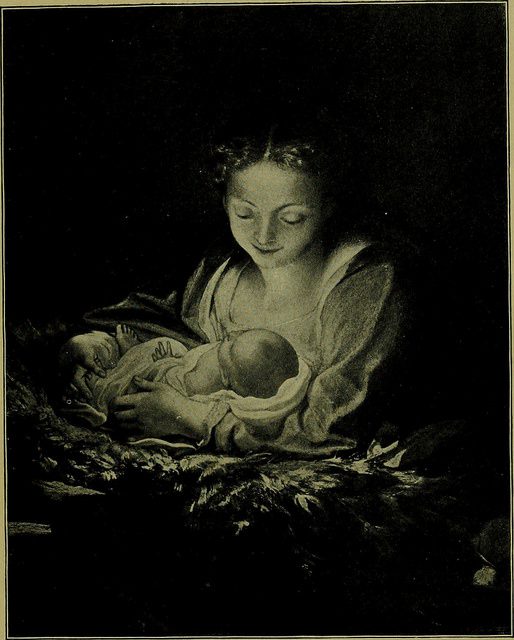
Correggio (1489 – 1534). Public domain
Again, Mary is pondering.
She has endured an incredibly difficult journey during the last month of her pregnancy when she should have been relaxing and having her swollen feet massaged. She has given birth for the first time, not at home surrounded by her female kin and a familiar midwife, but in a stable surrounded by animals. Her first visitors are not her male kin come to congratulate her husband and gaze admiringly at her son, but strangers—shepherds from the nearby fields.
And they come with a message that is strangely reminiscent of the one she received nine months ago. These sheep herders were also visited by an angel—most likely Gabriel—and told that the Messiah had been born that very night in this very place.
Mary, being the turning-things-over-in-her-mind kind of gal that she is, remembers how the angel had told her nine months ago what her son’s name was to be. Yeshua, which means “God will save.” And what were the shepherds told?
“To you is born this day in the city of David a Savior, who is the Messiah, the Lord” (Luke 2:11).
Just as she sang her Magnificat with full voice after the Anunciation, so, too, the shepherds return to the fields singing the song they heard echoing across the heavens.
“Glory to God in the highest heaven! Peace has come to God’s people!”
But no doubt exhausted from her labor and delivery, Mary does not sing this time. She simply takes what the shepherds have told her and treasures them. The word is syntero, meaning “to keep.” She holds on to their words. She ponders them in her heart. The word is symballo, meaning “to bring things together in one’s mind.”
Once again, it is not just Mary’s body that has brought together heaven and earth, but her mind.
For the ancients, the heart was believed to be the center for reason, not emotion, as it tends to be today. So Mary is taking mental notes, making connections in her brain that will serve her and her child at some time in the future.
Luke 2:41-57
In Luke 2:41-57, the gospel brings our attention to another moment in Mary’s life, but this time she is panicked, looking for her son. He has slipped away from his clan making their return home from the visit to the Temple in Jerusalem. When she finally finds him, this young upstart is schooling the rabbis, much to their wonder. But she sees only a wayward child vulnerable to whatever dangers might be lurking.
How can any of us understand what we put our parents through, until we become adults ourselves? How can any parent grasp what path God has called their children to follow until we look back years later and . . . ponder.
And that’s just what Mary does. Once again she “treasures” this moment. She holds fast these things in her heart, the place where she brings together that which is of heaven and earth.
Jesus, not much younger than Mary herself when she became betrothed to Joseph, is a chip off the old block.
He, too, is using his mind, turning things over in his brain, making connections, gaining wisdom, collecting insights. She shouldn’t be surprised, really, to see her son doing exactly what she had done at his age. It’s part of the reason she was favored in the first place.
And this pondering will mark their relationship throughout their lives. How Mary will ponder when her son transforms water to wine (John 2:1-11). When he appears to reject her for his new “family” of followers (Matthew 12:46-50). When he refers to himself as a “mother hen” longing to protect the vulnerable ones (Matthew 23:37; Luke 13:34). [See: Jesus, Mother Hen: This is the God I Want to Worship.] When he uses his final dying breaths to appoint her surrogate son, ensuring that she is cared for when he is gone (John 19:25 – 27).
All those moments will come. But at this moment, when she holds this promised child in her arms – treasuring, pondering – the Godbearer knows only that she herself was pondered by God, treasured by God. And now the Godbearer will make her own imprint on the child she has birthed and will raise – this child whom she ponders and treasures.
All mothers – all women – in their Godbearing, make their own imprint on the people around them, even as the power of God leads us to destinies we can scarcely imagine.
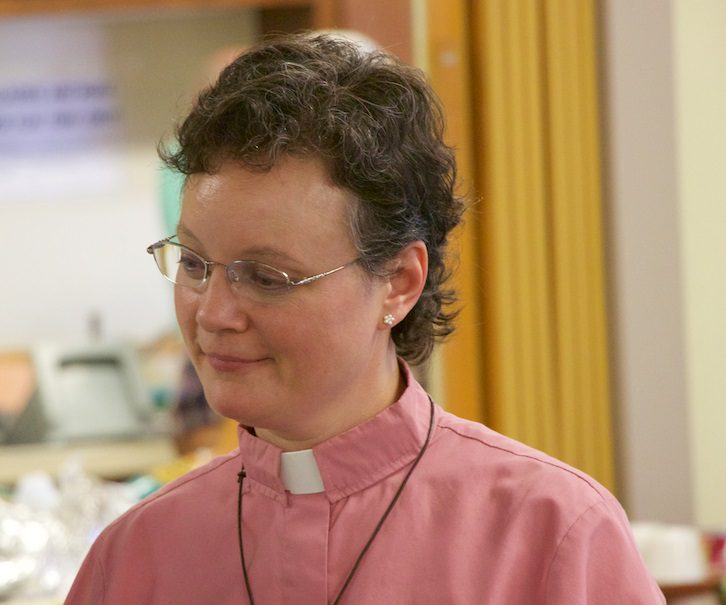
Leah D. Schade is the Assistant Professor of Preaching and Worship at Lexington Theological Seminary (Kentucky) and author of the book Creation-Crisis Preaching: Ecology, Theology, and the Pulpit (Chalice Press, 2015). She is an ordained minister in the Lutheran Church (ELCA).
Twitter: @LeahSchade
Facebook: https://www.facebook.com/LeahDSchade/.
See also:
Mary, Pondering and God-bearing: Part One
Jesus, Mother Hen: This is the God I Want to Worship



